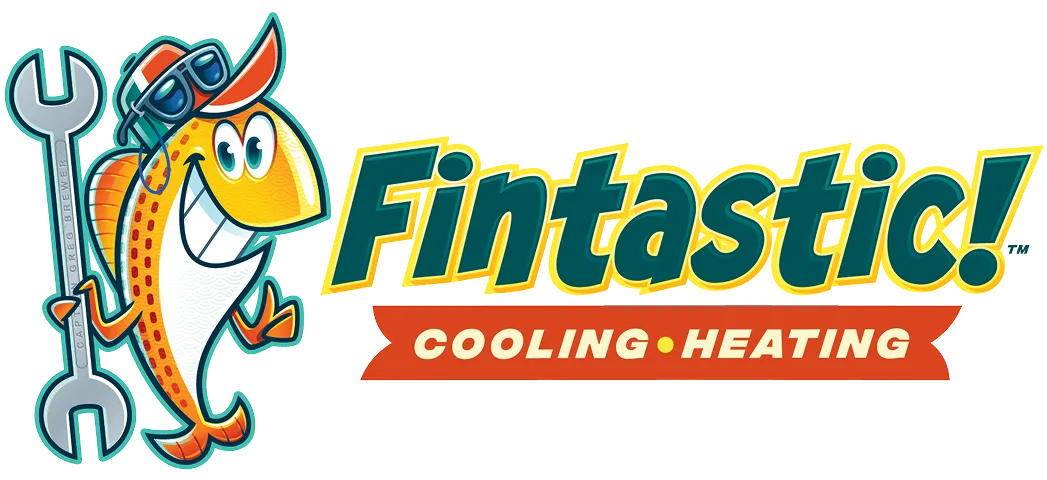Air Filtration in Liverpool, TX
Air Filtration in Liverpool, TX
Keeping indoor air clean is especially important in Liverpool, TX, where hot, humid summers, seasonal pollen, and regional dust and industrial emissions can increase airborne irritants. Whether you manage a family home, rental property, or a commercial space, the right air filtration strategy reduces allergens, odors, dust, and fine particles that aggravate asthma and allergies.

Why air filtration matters in Liverpool, TX
- Hot, humid conditions and frequent thunderstorms raise indoor mold and mildew risk.
- Spring and fall bring high pollen counts; summer can carry grass and weed pollen.
- Coastal and nearby industrial influences contribute to dust, diesel soot, and VOCs.
- Poor filtration allows particles to circulate, increasing cleaning needs and respiratory symptoms for sensitive occupants.
Common air filtration options and what each does
- HEPA (High Efficiency Particulate Air)
- Captures 99.97% of particles down to 0.3 microns, including pollen, pet dander, mold spores, and smoke particles.
- Best for bedrooms, living areas, and medical or allergy-sensitive spaces.
- Generally used in portable units or integrated into dedicated whole-house systems.
- MERV-rated HVAC filters
- MERV ratings indicate particle capture efficiency (MERV 1–16 common in residential/commercial).
- MERV 8–11: good for dust, lint, pollen; widely compatible with most HVAC systems.
- MERV 13: captures finer particles (including some bacteria-sized particles and smoke); often recommended for allergy and asthma concerns but requires HVAC systems with compatible blower capacity.
- Higher MERV = higher airflow resistance; check HVAC compatibility before upgrading.
- Activated carbon filters
- Remove odors and gaseous contaminants (VOCs, cooking smells, some industrial odors).
- Do not remove particles; best combined with HEPA or MERV filtration for full-spectrum control.
- Electrostatic filters
- Use electrostatic attraction to trap particles. Some are washable/reusable.
- Performance varies by model; washable types need regular cleaning to maintain efficiency.
- Some electrostatic ionizing devices generate trace ozone; choose certified low-ozone products if ozone sensitivity is a concern.
Choosing the right system for your home or business
- Identify the primary pollutant concerns: pollen and dust, mold spores, smoke (seasonal or wildfire), odors/VOCs, or a combination.
- Size matters: calculate the space to be treated (square footage and ceiling height) and consider desired air changes per hour (ACH). Bedrooms and living rooms generally need fewer ACH than commercial spaces or medical suites.
- HVAC compatibility: if using whole-house filters, verify your furnace or air handler can handle the increased pressure drop caused by high-MERV or HEPA-grade filters. If not, consider a dedicated in-duct air cleaner with its own fan or portable HEPA units.
- Portables vs whole-house:
- Portable HEPA units are effective for targeted rooms, rental units, or supplemental filtration during high-pollen or wildfire events.
- Whole-house filtration provides continuous protection throughout ducted systems but requires proper sizing and periodic HVAC assessment.
- For commercial spaces: follow ASHRAE-recommended ventilation and filtration guidelines for occupancy type. High-occupancy or healthcare-adjacent facilities typically require higher filtration efficiency and greater ventilation rates.
Installation and retrofit considerations in Liverpool homes
- Older homes may have leaky ductwork or undersized HVAC systems; sealing ducts and assessing blower capacity improves filtration effectiveness.
- Retrofitting a whole-house HEPA unit often involves space for an added fan and sufficient access to duct runs; a professional assessment is recommended.
- Portable units are a practical retrofit solution: they require no HVAC changes, can be moved to affected rooms, and are particularly useful during seasonal pollen peaks or cooking-related smoke events.
- Placement matters: place portable units where occupants spend the most time and where airflow is unobstructed. For in-duct installations, position upstream of the return blower if specified by the manufacturer.
Maintenance and filter replacement schedules
- Typical replacement/maintenance guidance (adjust based on local conditions and manufacturer instructions):
- Basic fiberglass/MERV 6–8 filters: inspect monthly; replace every 1–3 months.
- MERV 11–13 pleated filters: inspect monthly; replace every 3 months in normal conditions, more frequently during high pollen or wildfire smoke events.
- HEPA filters in portable units: replace per manufacturer guidance — commonly every 6–12 months depending on use and pollutant load; many models have indicator lights.
- Activated carbon filters: replace according to odor levels and manufacturer guidance; heavy VOC exposure shortens service life.
- Electrostatic washable filters: clean monthly and inspect for wear; replace when performance drops.
- In Liverpool, TX, heavy pollen seasons and humid months increase loading from dust and biological material; inspect filters more frequently during these times.
- Annual HVAC inspection: ensure blower performance, duct leakage, and filter housings are intact to maintain expected filtration efficiency.
Performance expectations and measurable metrics
- HEPA: removes up to 99.97% of particles 0.3 microns in size; highly effective for pollen, dust, pet dander, and many smoke particles.
- MERV ratings: higher ratings capture progressively smaller particles. MERV 13 is a common compromise for improved fine particle capture without overwhelming older HVAC systems.
- CADR and ACH:
- Clean Air Delivery Rate (CADR) applies to portable units — higher CADR treats larger rooms faster.
- Air Changes per Hour (ACH) measures how often the air in a room is filtered per hour. For general allergy relief, 4–6 ACH is a common target for living spaces; higher ACH is recommended for clinical settings.
- Real-world results depend on source control (reducing indoor smoking, cooking with ventilation, humidity control) and proper system sizing. Filtration reduces particle counts significantly but works best as part of a comprehensive indoor air quality plan.
Health benefits for allergy and asthma sufferers
- Proper filtration reduces exposure to common triggers: pollen, dust mites, pet dander, mold spores, and some smoke particles.
- For people with asthma or allergies, improved filtration often translates to fewer symptomatic days, reduced nighttime symptoms, and cleaner surfaces with less settled dust.
- Filtration complements other measures: humidity control (to limit mold and dust mites), source reduction (no indoor smoking, proper ventilation while cooking), and regular cleaning.
Final considerations for Liverpool, TX properties
- Match filtration strategy to local patterns: prioritize pollen and mold control in spring/fall and humidity-related measures year-round.
- Combine particulate filtration (HEPA/MERV) with activated carbon when odors or VOCs are a concern.
- For renters or small businesses, portable HEPA units provide flexibility; for whole-house solutions, evaluate HVAC capacity and duct condition before upgrading filters.
- Ongoing maintenance is essential in Liverpool’s climate: check and replace filters more often during high-pollen or humid periods to keep systems performing and protect occupants with allergies or asthma.
Implementing the right air filtration approach reduces indoor irritants, improves comfort, and supports respiratory health in Liverpool, TX homes and businesses when combined with sensible ventilation and moisture control.
Other Services
Customer Testimonials
Our customers praise our exceptional service and attention to detail, consistently exceeding expectations.





Our service man went out of his way to find our problem & get it fixed all in one day. As always, the job was done with the hugest quality & precision. That is why we have been a customer & friend for over 20 years.
Sharon A.





We are very happy with Ricky and Fintastic. He made suggestions for improving and balancing our system which seem to be very reasonable. We have used him before and will probably go ahead with the improvements. We couldn't be happier with our service.
Nick H.





We get exceptional service and results from Fintastic Cooling & Heating! They are dependable and we trust them to have our best interest at heart - from the office to the staff in the field. Kudos to Ricky!
Karen J.





Quality Air is my go-to HVAC company. I have used them for years and will continue to do so. They have always been very honest and give good recommendations. Ricky is top-notch.
Ashley J.





I have been having my AC / heating units installed and serviced by this company for 40 years. They have always provide fair and reasonable pricing and excellent service. I highly recommend them
John C.





Greg showed up on time, diagnosed my issue and made the repair quickly. Very happy to be cooling properly again.
Justin G.





Greg was very knowledgeable and explained everything well. He answered all our questions and made changes for us along the way. I recommend Fintastic
Carol M.





The technician was excellent. Only issue I had was a lack of communication when he was delayed. I had to call a few times to get updates. Delay was warranted due to storms in the area, but clear communication throughout would have made it a 5* experience.
Ben B.





Excellent service. Went above and beyond necessary service. Ricky was my technician, he was very nice, on time and knew his business.
Brian L.





Fintastic Quality Air came through once again with a five-star rating spring AC check. Fintastic Quality Air has been providing our HVAC needs for over 3 decades with 100% customer satisfaction. We highly recommend them.
Bobette D.





I don't have pictures but we are extremely happy with Quality Air and their knowledge. They fixed our A/C in a timely manner and I will definitely recommend them to friends and family.
Nora H.








